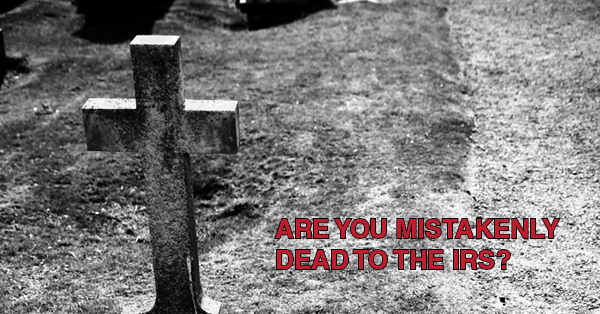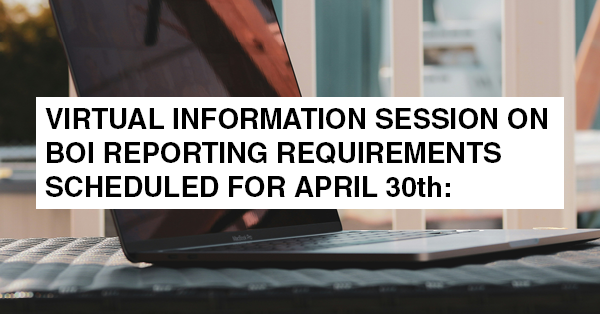ARE YOU MISTAKENLY DEAD TO THE IRS?

A new report, by the Treasury Inspector General for Tax Administration (TIGTA), says the IRS placed 'deceased locks' on accounts of more than 90,000 taxpayers who were very much alive. The IRS incorrectly locked thousands of taxpayer accounts because the agency thought the taxpayers had died
Typically, the IRS locks accounts of taxpayers who have passed away to prevent fraudulent use of the deceased person’s information. When the account is locked by the IRS, because the individual has been marked deceased, they cannot file tax returns or receive tax refunds.
The IRS confirmed that many of the "taxpayer accounts were locked in error due to both human and computer programming issues when identifying the appropriate taxpayer accounts to be locked,” the August 7 report states.
To prevent identity theft and filing of fraudulent tax returns, the Internal Revenue Service developed an indicator to lock the accounts of millions of taxpayers whom the agency assumed had died, but for tens of thousands of people, that indicator may have been wrong.
A report released Thursday by the Treasury Inspector General for Tax Administration examined the IRS's procedures for ensuring those account locks were accurate after concerns were raised that the service was improperly locking the accounts, preventing taxpayers and their families from filing tax returns and receiving tax refunds.
The IRS had locked 52.5 million taxpayer accounts with a deceased indicator as of Jan. 20, 2023, but TIGTA's analysis of tax account information through January 1, 2022, found 77,868 taxpayers with potentially erroneous locks.
"In these instances, the Social Security Administration's data did not indicate that the taxpayer was deceased, i.e., there was no date of death present," said the report. "Further analysis determined that the deceased account locks were input because of the filing of a return or other actions taken by the IRS. The IRS confirmed that 20,222 taxpayer accounts were locked in error due to both human and computer programming issues when identifying the appropriate taxpayer accounts to be locked."
Incorrect data from the Social Security Administration may be partly to blame for the problem, which has persisted despite TIGTA's findings. The inspector general's office updated its analysis of deceased account locks for January 2, 2022, through October 29, 2022, and found that thousands of taxpayer accounts appear to still be erroneously locked. TIGTA's analysis identified another 14,193 taxpayer accounts that had been potentially erroneously locked during that time period.
To fix the problem, the IRS made some programming changes in late January to do an annual reconciliation of the date-of-death information between the SSA's records and the IRS's data. The service then confirmed that 6,821 of 9,646 tax accounts for which it issued a CP01H notice, "Tax Return Submitted with Locked Social Security Number," were inappropriately locked. In those cases, the agency couldn't process the tax return because of the incorrect account lock.
The IRS argued that it needed to implement the account locks to deter fraudsters and identity thieves.
"Early in the last decade, bad actors lured by the increasing availability of refundable tax credits disbursed through the tax system, and using the stolen identities of individual victims, exponentially increased the rate of identity theft-related tax fraud," wrote Kenneth Corbin, commissioner of the IRS's Wage and Investment Division, in response to the report. "Deceased individuals, whose names and Social Security Numbers were improperly obtained by the fraudsters, represented a significant portion of the identity theft victims. In 2012, we implemented programming changes that effectively stopped the payment of refunds on fraudulent claims made using decedent accounts."
He noted that the majority of decedent accounts are identified through information obtained from the Social Security Administration, but if a death has not been reported to the SSA, the account will not show a date of death. Decedents can also be identified when their heirs or estates file a final tax return. Since errors can occur, IRS employees are empowered to remove the account lock when an individual has been authenticated as the legitimate taxpayer.
Each year, the IRS receives a file from the SSA containing a complete list of accounts for which a date of death is available in the records. The IRS updated its programming in January to compare that file with the information in its own systems and generate a report on accounts for which there's no date of death in the SSA records. That list will now be reviewed to identify any accounts that are likely to have been locked erroneously.




